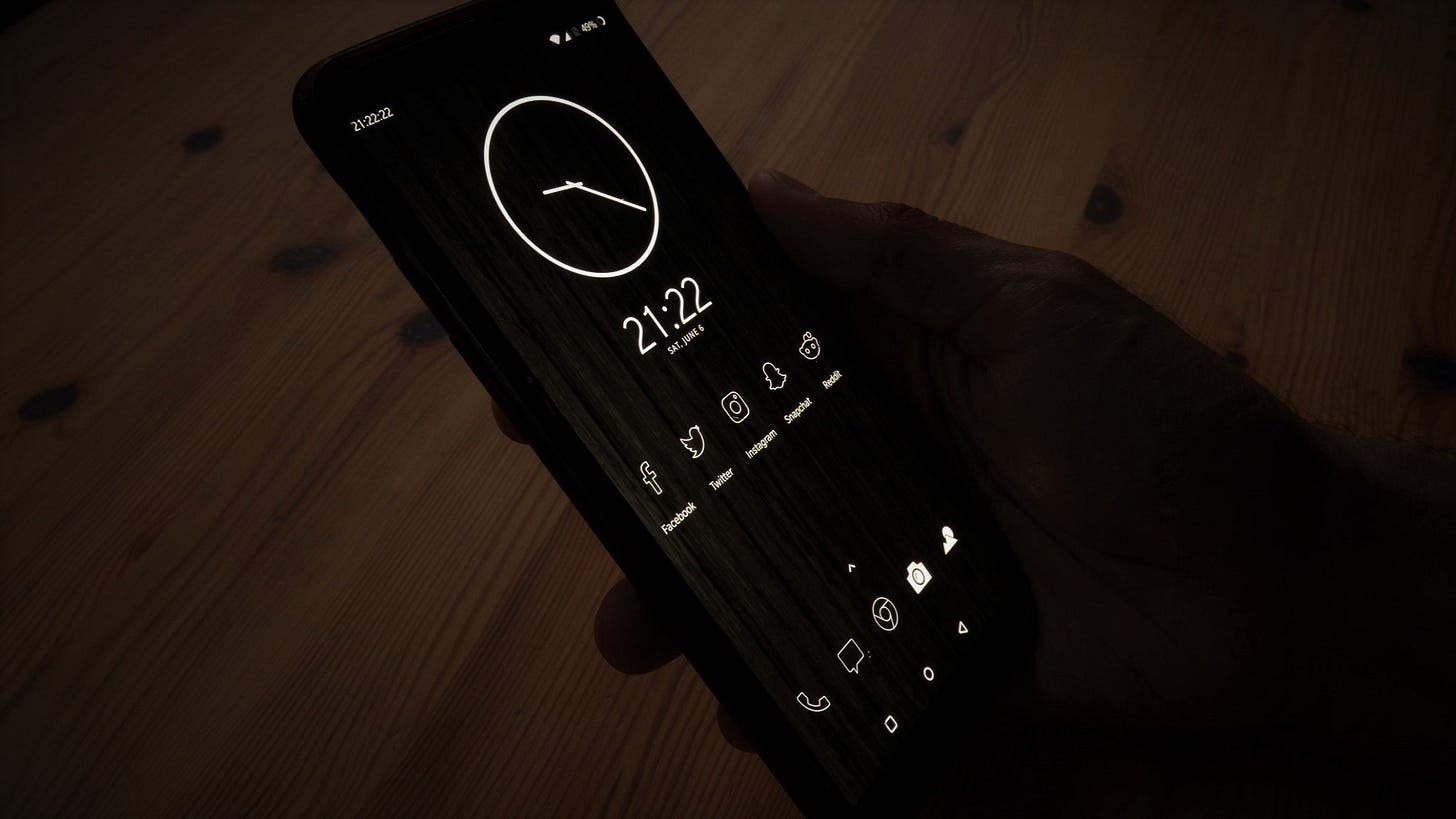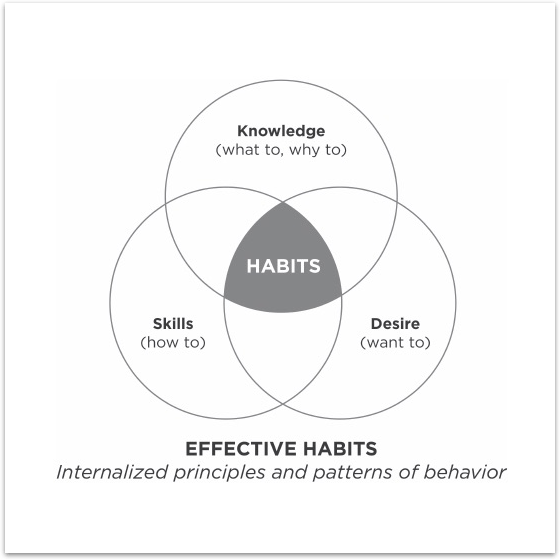Habits
How to build good habits and break bad habits

Intentions
In this post I'm going to share something I recently read regarding habits that made a lot of sense to me. I hope that you can use this information to build good habits and break bad ones.
The Importance Of Habits
"We are what we repeatedly do. Excellence, then, is not an act, but a habit" - Aristotle
This quote has really stuck with me since I first came across it. You know the saying You are what you eat? It's similar to that, but a bit broader.
You are what you repeatedly do.
If you want to be excellent, you don't need to build good habits but, it's a lot easier if you do.
Humans are very habitual. We do the same things repeatedly and follow patterns more often than we think. Do you have a certain phrase that you say a lot? A specific greeting you always use with friends or family? Those are habits. They are deeply embedded in our actions from a young age.
Babies suck on their thumbs - Habit.
Nail biting - Habit.
Waking up and check your phone - Habit.
To live an effective life, you want to build good habits like eating healthy, exercising and being productive, whilst breaking bad habits like procrastination, impatience and so on.
Habits can work for us or against us. We hope it’s not the latter.
Gravity
Habits are powerful factors in our lives. Because they are consistent, often unconscious patterns, they constantly, daily, express our character and produce our effectiveness...or ineffectiveness. - Stephen Covey
The following analogy makes a lot of sense. I read this in Stephen Covey's book 'The 7 Habits Of Highly Effective People'. For short I'll call this The 7H Book.
Think back to the voyage of Apollo 11. The astronauts had to break out of the earth's gravitational pull. More energy was spent in the first few minutes of lift off, in the first few miles of their journey than was spent over the following days to travel half a million miles.
Habits, like the earth, have tremendous gravity pull. Breaking them can require a lot of work, like the Apollo 11 needed a lot of energy.
Breaking deeply embedded habitual tendencies such as procrastination, impatience, criticalness or selfishness that violate basic principles of human effectiveness involves more than a little willpower and a few minor changes in our lives.
Once we break out of that gravity pull, our freedom takes on a whole new dimension.
'Habits' Defined
In The 7H Book, Stephen defines a habit as the cross section of knowledge, skill and desire.
Let's break this down.
Knowledge - the what to do and the why.
Skill - the how to do it.
Desire - the motivation, the want to do it.
To build a habit successfully, you must do all three.

The image above is from page 56 of the The 7H Book (25th Anniversary Edition).
Lacking Parts
Creating a habit requires work in all three dimensions.
Lack of Knowledge
Listening is a key part of being a good communicator, but many people don't know it's importance.
They may have the desire and skill to be a better communicator, but without the knowledge they won't think to build the habit of listening.
Lack of Skill
Maybe you know you should listen (knowledge), and you might want to listen (desire), but you may not know how to listen, so it is impossible to do so without knowing how (skill).
Lack of Desire
I'm sure we are all aware that exercise is good for us (knowledge) and we know how to do it (skill), but without the want (desire) to do so, it won't happen.
Take Action
“Any man who reads too much and uses his brain too little falls into lazy habits of thinking” - Albert Einstein
It makes a lot of sense in theory but as usual with any life advice I share, knowing this won't make a difference. It's all about the action you take.
In order to make that easy for you, I've made this little manual for forming habits. Below I have filled it in using exercise as an example.
Exercise
Knowledge
What is the habit: Exercising regularly.
Why do I want this habit: To improve my physical and mental health.
Skill
How do I do it: Use a workout plan that I can follow consistently and correct form (do things properly) when exercising.
Desire
Why do I want to do it: I want to look more toned.
Filling this manual out for different habits can show you exactly where you are lacking in building a habit.
Creating habits can be a painful process. We tend to dislike change. When you have a habit deeply embedded into your life, something that has been that way since childhood, changing that requires motivation by a higher purpose, by the willingness to subordinate what you think you want now for what you want later.
Resistance
Habits can be learned and unlearned.
Resistance is the barrier between you and getting things done.
More resistance makes it harder to get things done.
Good Habits
Good habits that are hard to build often have a lot of resistance, which makes them harder to stick to.
It takes relatively more effort to get dressed and drive to the gym, than to watch Netflix all day.
Bad Habits
Bad habits have very little resistance, which is why we can fall into an endless pit of procrastination with such ease.
It is very easy to unlock your phone and watch random YouTube videos for hours on end, compared to writing an essay, for example.
Something I found useful in building new habits was trying to reduce and increase resistance where necessary.
Adding Resistance - Breaking A Bad Habit
Scrolling through social media apps is a bad habit of mine, so to increase the resistance to this habit, I did the following:
I removed social media apps from my home screen (iPhone users, move them to the last page of the home screen)
I turned off all social media app notifications (except WhatsApp)
Now, the only time I go on the apps is when I can be bothered to find them amongst my giant library of apps.
Having notifications off means that whenever I do check them, I usually just respond to any messages rather than aimlessly scrolling. Sometimes I unlock my phone and I see the empty home screen and think Ah I moved the social media apps for a reason, so I just lock my phone and carry on with my day.
When I added this resistance, I started noticing how often I unlock my phone in a day for no reason whatsoever. I was waiting in a queue at the post office recently and I reached for my phone almost instinctively. I noticed of course, that I was just doing this to escape the few minutes of silence with my own mind, but I put my phone away and did the opposite.
I waited in line. No phone. Just me, my parcel and my thoughts.
I know what you're thinking, what a psychopath, right?
When you build resistance to a bad habit like this, over time you will naturally disengage with it. On that note, you can also change the level of resistance.
I know some people delete the apps and only access them on the internet when on a laptop/computer. Others have a designated hour of the day where they can check social media to their heart's content.
Just find something that works for you. Experiment with it.
Removing Resistance - Building A Good Habit
Reading before bed is a good habit that I want to do more of. Usually when I get in bed I can easily get distracted by my phone or laptop and completely forget I was meant to read in the first place, so I do the following:
I leave my book or kindle on my bed in plain sight.
I leave my phone and my laptop on my desk, a few metres away from my bed.
Now, when I get into bed, if my phone is in my hand, I see the book and it reminds me to leave my phone elsewhere before I lie down and get lost in the digital world. Since my book is there, I pick it up and follow my 2 page rule:
You have to read a minimum of 2 pages. No less. After 2 pages, if you feel like reading more, feel free to carry on.
Fortunately, this rule reduces the resistance to start, because by the time I'm 2 pages in I usually want to carry on reading. In the odd circumstance that I don't feel like reading on, I choose a different book - this is one of the benefits of reading multiple books at once. If you juggle multiple Netflix series at once, try it with books too.
The idea with good habits is to make it as easy as possible to do them. If you want to workout in the morning, set out your gym clothes and water bottle before you sleep, ready for when you wake up. Make a playlist to get you moving. Find a workout partner to hold you accountable.
Every habit comes with resistance. The trick is increasing or decreasing that resistance to make the occurrence of that habit more or less likely.
Reverse Psychology
There are habits like exercising and studying which reap benefits and reward at the end of the habit. Most people would agree that on days when they don't necessarily feel like working out, once they complete the workout they leave the gym in a better head space having done the workout.
So how do you combat that negative mindset before doing the habit? I use feedback in a reverse psychology fashion.
When I leave the gym and I feel good, sometimes I record a little video for myself, or I write a short journal entry of how good I feel. So next time I'm lacking the desire to do something, I look back on how it made me feel last time. That can help spark the desire in you.
I have plenty of little motivational reminders for studying, working out, getting up early on my phone. The way I see it, how can I not take my own advice from these little videos and journal entries?
If that doesn't work, just suck it up and do it anyway. You'll be doing your future self a favour.
Productive procrastination
Let's be honest we all procrastinate to an extent. Some more than others but it is a universal battle we all face at some point. Productive procrastination is something I like to do to justify not doing the main task at hand.
This is when you side track from the main task at hand to attend to another task, which although is of less importance, it’s still being productive. I think this is an acceptable level of procrastination so long as the main task is returned to after completing the side task.
It's like taking a break when writing an essay to clean your room. (I'm guilty of this). Both tasks are productive but really I'm just procrastinating, productively.
If you 're going to procrastinate, at least do something productive, right?
Get Up And Go
This is a little piece of advice that I use. I keep a white board in my room. Sometimes I write a quick To-Do list on there. To motivate myself to do the things on there, in big letters I write:
G.U.A.G (Get Up And Go)
It's quite self explanatory but, I just literally get up and go. If you move quick you won't give your brain enough time to talk yourself out of it. It's not fool proof but it has definitely worked for me, so maybe it can work for you too. When you want to build a habit, this is a good method to break out of the gravity pull of a habit.
The 5 Second Rule
This is Mel Robbins' idea for being productive, tackling anxiety and much more. Mel has done a lot of research and reading around how and why this works. I think this method can be used to get some activation energy when starting a habit.
I can't do it justice in this little paragraph so here are some sources:
This video (Skip to 03:18 for the main part) - WATCH THIS FIRST.
This video (Skip to 02:20 for the main part)
In short:
When you need to get something done you IMMEDIATELY count from 5 down to 0 in your head or out loud, then you do whatever the task is.
5, 4, 3, 2, 1, GO. Zero hesitation.
I haven't read the book, so I won't say anything more, but her videos explain it quite nicely. It works.
Key Points
We are defined by our habits, good or bad.
Aim to increase good habits and decrease bad habits.
A habit is successfully formed when you have the knowledge, skill and desire for it.
Habits have resistance. Reduce and increase resistance where necessary to make life easy.
Use methods like The 5 Second Rule, G.U.A.G and Productive Procrastination (There are plenty more out there).
Habit tracking is an important part of building habits. I will be posting Life Maintenance Pt. 2 soon which will be all about Habit Tracking and how I use it.
Insight of the week:
The Importance of Self-Education
This insight was inspired by the recent and ongoing Black Lives Matter movement. This is a topic I know very little about but in just a week the things I have learnt are astounding. I think this is a perfect opportunity for those of us who are not read up on the topic to educate ourselves on one of the most important issues in the world today.
The abundance of resources being shared these days show there is no excuse to take a backseat and say 'I'm not an expert'.
Educate yourself.
Whether you're 15, 25 or 50, it's never too late to educate.
The education system hasn't changed for a long time. It's outdated. Unfortunately it doesn't teach us enough for us to live the rest of our lives without ever picking up a book again. Society has moved forward, but education hasn't moved forward with it.
Unless you studied economics or politics, you probably didn't get taught about how the economy works, how the government functions. What taxes are, how to buy a house - knowledge that is vitally important in later life.
I used to complain about these things, Ugh school didn't teach me that.
But I had a recent change in mindset when I came across the word 'Polymath'.
A person of wide knowledge or learning - Polymath
Most exceptional thinkers such as Einstein, Leonardo Da Vinci and Aristotle were Polymaths. In their day it was a lot more difficult to get a hold of information on a certain topic. Today we have the internet and it would be a real shame if we didn't use it to it's full potential.
You can access literally any topic at the tip of your fingers and not just in the form of books, in videos, podcasts and interviews.
The main lesson here is, self education is important and should be a universal activity we all engage in. If I have one regret in life, it's that I didn't start self education at an earlier stage. Although I am on my gap year right now, I'm still learning the same if not more than if I had been studying.
Next time you have a curiosity, google it and learn. Don't let a question go unanswered.
About the Author:

Daanish is a Biomedical Science graduate and a (soon to be) Medical Student.
If you liked this edition, consider sharing it with a friend.
If you’ve been sent here by a friend, join the tribe and have weekly newsletters sent to your inbox (free). Subscribe here :)
